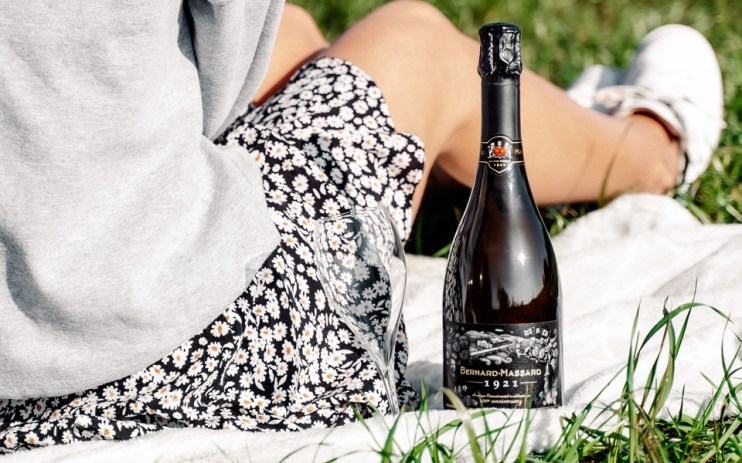Luxembourg wine: Time to discover Europe’s forgotten sparkle

We should be thinking more about Luxembourg wine. Wine production in the Grand Duchy has been in gentle decline since the late 1990s but the country that’s even smaller than Andorra is not giving up.
The fifth generation of leading producer Bernard-Massard is celebrating its centenary this year and has launched a Chardonnay Pinot Noir and Riesling Pinot Blanc Cuvee 2021. Inspired by a fresco of an old Bernard-Massard letterhead, the label is the work of Luxembourg artist Anne Mélan and features the flags of the winery’s main foreign markets – Finland, Canada and Belgium.
The company was founded by Jean Bernard, who had trained in Epernay and Reim; Massard was his wife’s maiden name. The flagship Cuvee Ecusson range was launched in 1971 on the firm’s 50th birthday.
Luxembourg may not yet be causing Alsace much anxiety, but it makes over 100,000 hectolitres of wine each year. “Luxembourg is generally overlooked for wine,” says Tim Jackson of Amathus, “while it’s actually – literally – a cool place for it. Bernard-Massard is the leading brand, showing just how well-suited Luxembourg is for making crisp, elegant, well-priced alternatives to Champagne. We sell their sparkling as well as their still wines from their 19th century Clos des Rochers estate.”
Amathus has stores in Soho, Shoreditch, South Kensington and Muswell Hill as well as Bath and Brighton.
Luxembourg does not, of course, have an appellation but it has a Route du Vin, which begins in Wasserbillig in the north, follows the Moselle River as it flows along the country’s border, through Grevenmacher (which hosts the country’s largest wine festival), the Caves St Martin at Remich, Wormeldange (home of Domaine Alice Hartmann) and ending in Schengen and Henri Ruppert. Winemaking is centred on the south-east Luxembourg, with grape varieties include Elbling, Rivaner and Auxerrois.
Made in Luxembourg Riesling tends to be less sweet than those produced in Germany. Their Pinot Gris and Gewurztraminer, meanwhile, are the ideal drink for Coronation Chicken-heavy picnics.
Crémant de Luxembourg is produced in the traditional Champagne method in wineries including Caves St. Martin in Remich and Pundel. Established in 1935, the Marque Nationale guarantees the origin and quality of Luxembourg’s Vinmoselles. Some restaurants in Luxembourg are Ambassadeurs for Moselle Luxembourgeois.
There should be more ambassadors of north-west European wines outside of the 82km by 57km Grand Duchy. Time to discover Europe’s forgotten sparkle.